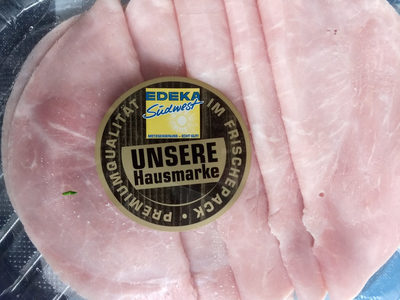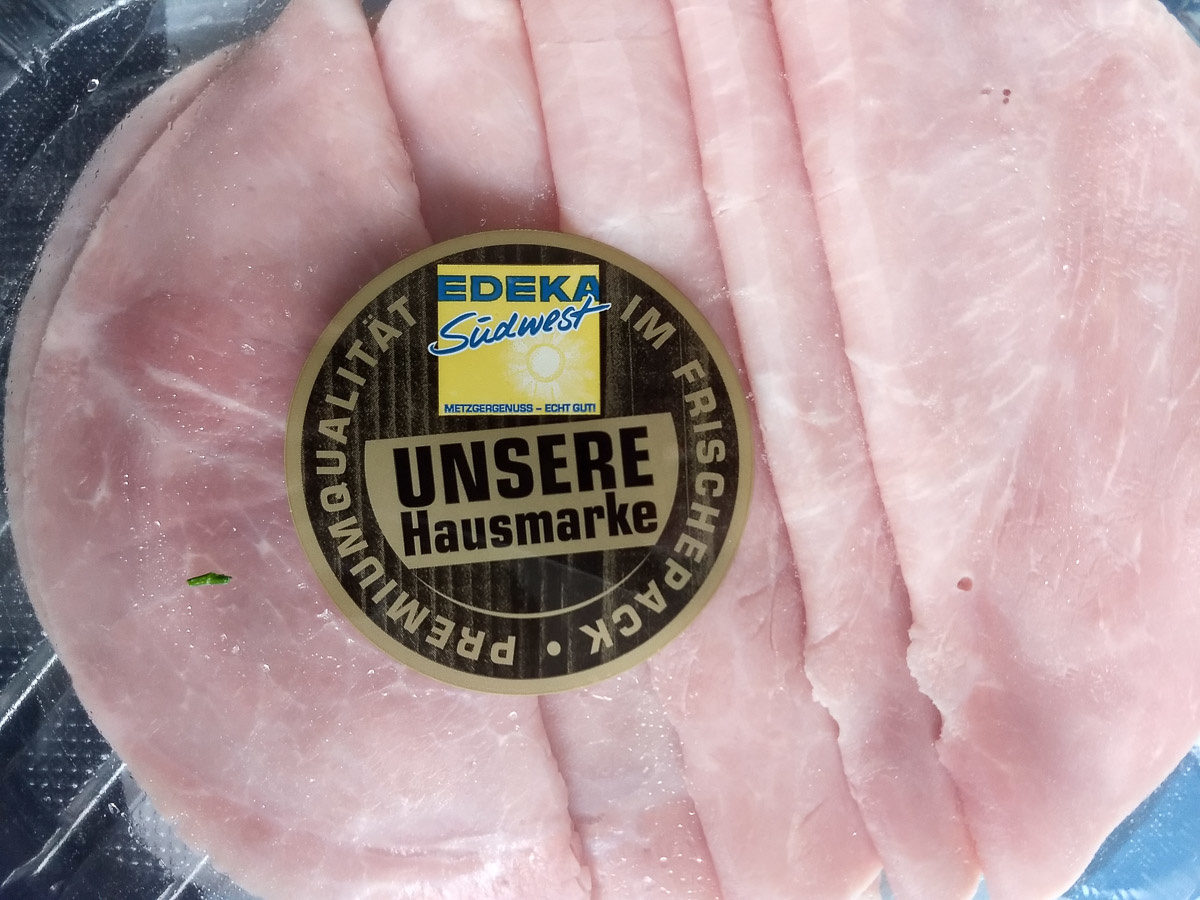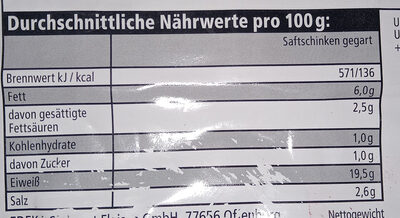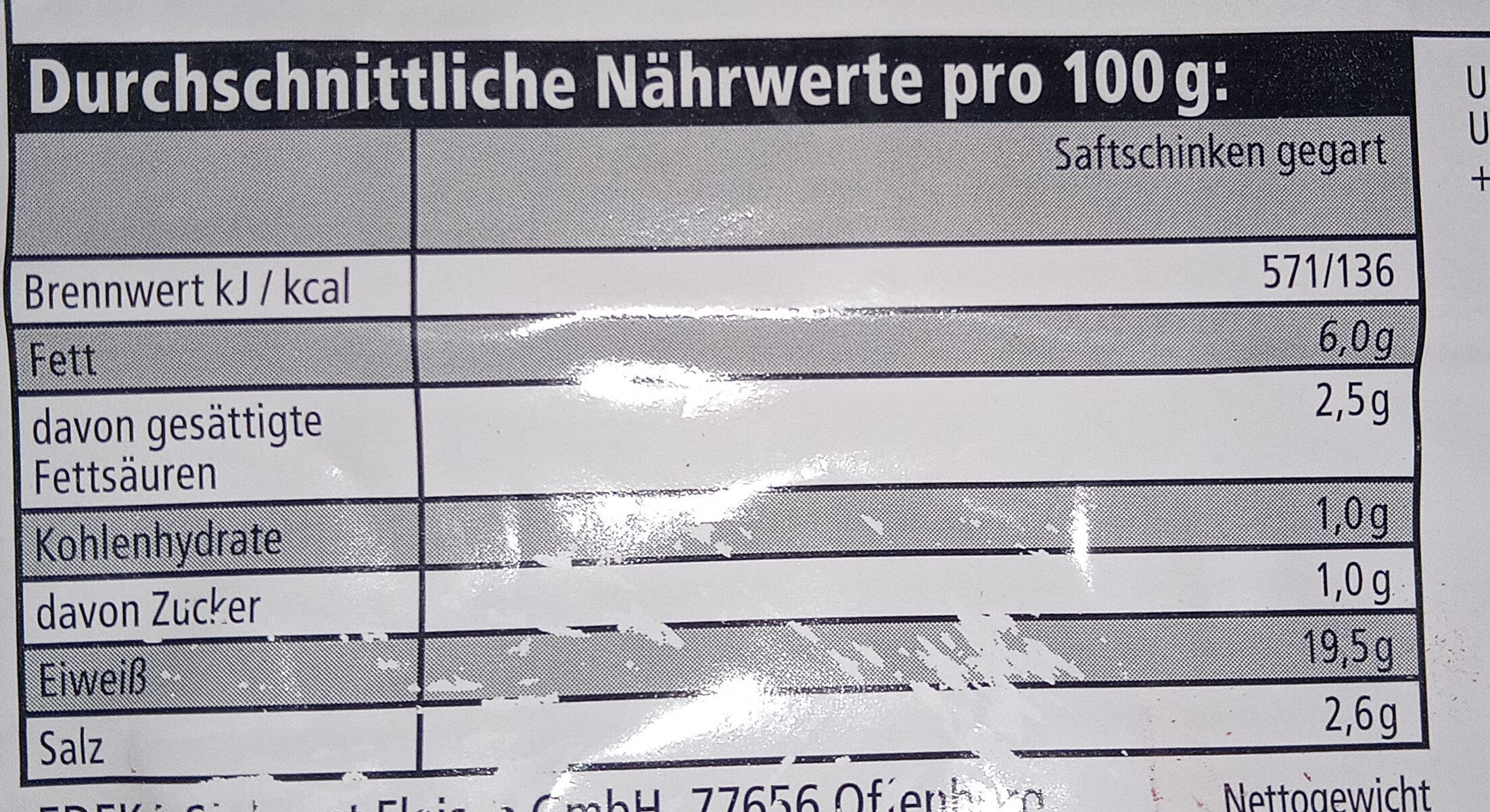Safthinterschinken gegart - EDEKA Südwest - 125 g
This product page is not complete. You can help to complete it by editing it and adding more data from the photos we have, or by taking more photos using the app for Android or iPhone/iPad. Thank you!
×
Barcode: 4314187031419 (EAN / EAN-13)
Common name: Delikatess Safthinterschinken gegart
Quantity: 125 g
Packaging: Plastic
Brands: EDEKA Südwest
Categories: Meats and their products, Meats, Prepared meats, Hams
Labels, certifications, awards: Natural flavors
Traceability code: DE BW 03333 EG
Stores: Edeka
Countries where sold: Germany
Matching with your preferences
Environment
Packaging
Transportation
Report a problem
Data sources
Product added on by twoflower
Last edit of product page on by packbot.
Product page also edited by kaiohmichiru, openfoodfacts-contributors.
If the data is incomplete or incorrect, you can complete or correct it by editing this page.











